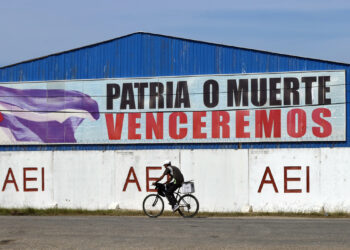Cuban People
When people visit Cuba they are struck by its very beautiful beaches; the beauty of its colonial cities; hills and rivers; the spectacular seabed along its coasts; and yes, of course, the old cars and the strange “exotic” mystic of living in revolution; but undoubtedly, what’s extraordinary about Cuba is its people.
Behind, in the middle, at the side, over, holding everything, are the people, with their lives, their joys, their loves, their miseries, their rhythm, their sorrow, their fears, their certainties.
I don’t believe we Cubans are “special” beings; we share much of the Caribbean spirit; of the Spanish traditions and soul; of the African essence; neither are we a compact mass, all Cubans don’t know how to dance, all of them don’t like rum, not all of them play dominoes or speak loudly, we are not all blacks or whites and, although we have the most “unanimous” Parliament in the world, nothing is more difficult than getting two Cuban to come to an agreement.
But it is true that when visiting Cuba one finds something that’s extraordinary in its people. Many say that it is the way of “sharing” the much and the little there is; others say that Cubans really know how to laugh and have fun (we also know how to cry and suffer); others have told me how close the people feel; others of the culture and the education they didn’t expect to find.
I still don’t know what it is, but something extraordinary happens to those who visit Cuba and interact with the Cubans, no one remains indifferent, intact. Things move, they shake.
There’s something else beyond governments, ideologies, life’s bureaucracy. I unquestionably and openly invite you to Cuba. Go with open eyes, ready to be moved, to listen, to observe and feel.










